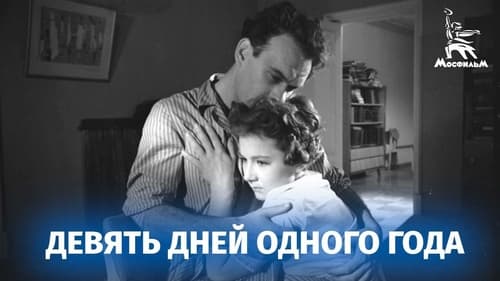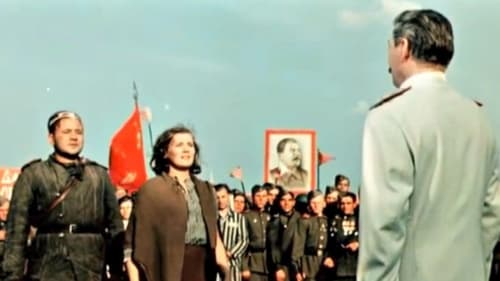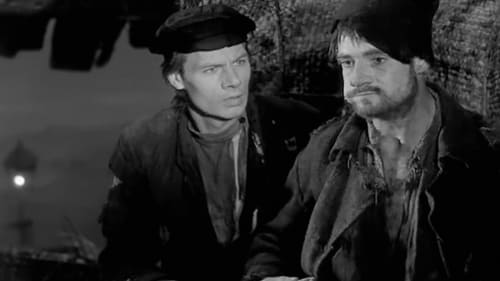
Sorin
Basada en la obra "La gaviota" de Antón Chéjov.

Krutitsky
TV version of the Vakhtangov's Theater play. The plot makes fun of secular society and shows what can turn cynical attempts to deceive people if they want to get to power and money.

Professor Nitochkyn

Professor Sintsov
Dos jóvenes científicos están explorando nuevos campos de la física nuclear. Dmitry Gusev y Kulikov Ilya son buenos amigos, pero están enamorados de la misma mujer. Dmitry se casa Lyolya y viven felices juntos. Tiene la suerte de realizar un descubrimiento importante. Por desgracia, se expone a la radiactividad durante los experimentos. Como resultado cae gravemente enfermo. Pero Dmitry tiene un espíritu fuerte.

Yarchuk
The story unfolds in a post-war town in Western Ukraine. The enemy agents are trying to subvert communist writer Aleksandr Garmash using ideological diversions. In parallel, a story is told about student Rostislav Danchenko who is being recruited by enemy agents. The story is pertinent due to resurgence of ultra-nationalist underground activity in Western Ukraine after World War II.

General Brauchitsch
Film de tono épico, que consta de dos partes y narra la caída del nazismo a manos del Ejército Rojo y la llegada y entrada triunfalista de Stalin -hecho simbólico, ya que no llegó a producirse en la realidad- en un Berlín donde el asedio de las hordas rojas puso fin a una contienda mundial instigada por los nazis de proporciones ,en todos los sentidos, espectaculares por su horror que dejó un rastro de decenas de millones de muertos.
Momentos cumbres como la Conferencia de Yalta, o diversos momentos en el Reichstag con un Hitler genialmente caracterizado, o la visita de un obrero de la fundición a la residencia de Stalin en Moscú donde es convidado a comer junto a él, Kalinin, Molotov y Beria confieren a este film, todos los ingredientes para convertirse en una obra imprescindible.

Uncle Vanya Yermilov
The story of Stalin and the Soviet people.

According to the eponymous vaudeville by A.P. Chekhov. Petty bourgeois Zhigalovs, whose daughter-in-law Dasha is being extradited, find out to their horror that the official Aplombov, who has been caring for Dasha all summer, has dined every day with them and has proved himself to be his bridegroom, is not going to marry at all.

Nikiforytch
My Universities (Moi universiteti) is the last installment of Russian director Mark Donskoy's "Maxim Gorki" trilogy. Having endured a painful youth in My Childhood and a torturous sojourn as a serf in My Apprenticeship, future writer Gorki reaches maturity with an insatiable desire for personal and artistic freedom. The "university" of the title is actual the school of Hard Knocks, as Gorky goes to work in the shipyards and commisserates with the hard-drinking, philosophical dockworkers.

Zhikaryov, icon painter
Second entry in Russian director Mark Donskoy's "Maxim Gorki" trilogy. Picking up where 1938's My Childhood left off, the story covers the years in Gorki's life when the future writer (Alexei Lyarsky) was on his own, looking for a purpose and place in life.

Kulak from Tamborsk
Historical-revolutionary film about Lenin’s activities in the first years after the Great October Revolution in Russia.

Directed by Grigori Roshal.

Two young boys strive to save the life of an officer trapped by the White Russians. Their efforts are both comic and dramatic

General Dombrovsky
"Paris Commune," 1870-1871. Poor working class in Paris rises up against their oppressors as France is defeated by Germany in the 1870-71 Franco-Prussian war.

Stepan Klimov

Larya
In a Kazakh village at the beginning of Soviet power, a wealthy kulak (landowner) voluntarily denounces his opposition to the new regime and hands over his large home to be a new school for the children of the villagers. But three people in the village have difficulty believing that their class enemy is now their friend.










